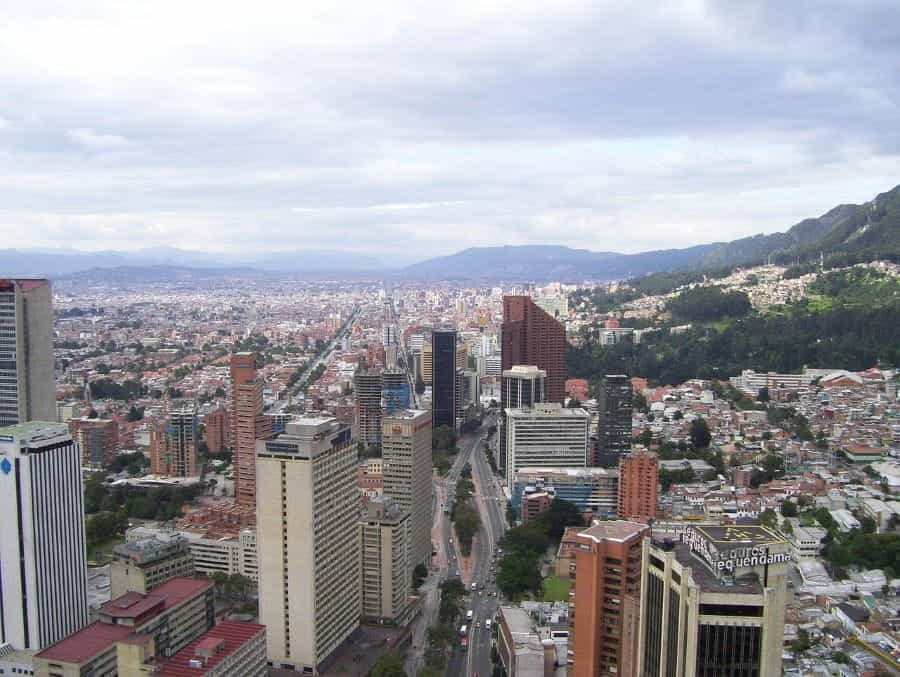Select Casinos To Experimentally Reopen in Bogotá
This week, the president of Colombia’s official regulatory body announced that a selected forty casinos will be allowed to reopen in the nation’s capital, Bogotá, as of September 1, 2020. This reopening plan is an experimental one, currently being called a “pilot program” by city officials: a means of testing the waters to see if it’s possible to safely reopen casino businesses as the pandemic continues to rage on without a treatment in sight worldwide.

After months of forced lockdown, forty casinos will be allowed to reopen in a new experiment by Colombia’s capital. ©Julianza/Pixabay
Not Colombia’s First Moves To Reopen Casino Activity During COVID
Just a few weeks ago, it was announced that casinos in certain municipalities where COVID-19 infection rates have remained or fallen low enough may be allowed to reopen to a limited extent on September 1, 2020. As with the Bogotá casinos, this has been termed a “pilot program” by the Colombian government.
The regions in which the COVID-19 infection rate has fallen or remained low are being called “Non-COVID Municipalities.” In addition to being allowed to reopen other non-essential businesses, casinos and bingo halls in these regions have been given permission via the federal government and the Health Ministry to reopen on a limited basis.
So far, just one municipality has been given permission by the federal government to reopen on a limited basis due to the pandemic. This is the Municipality of Cartago, Valle, which is home to just seven of Colombia’s gambling houses. This is a fraction of Colombia’s total gambling establishments, as the country contains a reported 2,765 overall.
What’s Unique About This New Development?
At the time that this initial statement was made, it was not specified which regions would be allowed to reopen businesses, nor was it suggested that Bogotá would be one such place. Throughout the coronavirus pandemic, Colombia has remained strict in its approach to lockdown, particularly in its capital city, Bogotá.
Forty Select Casinos Can Reopen
According to a recently-released decree via Colombia’s Ministry of Health, forty of Bogotá’s 532 casinos can now reopen for business. This experiment will allow the industry and the government together to assess best practices to continue operating what has become an increasingly vital part of Colombia’s economy as the pandemic continues.
As was explained by Evert Montero, president of Colombia’s gambling association, Fecoljuegos, this decision ultimately came to be out of ongoing and joint discussions between Fecoljuegos and Colombia’s Economic Development Secretary. In Montero’s address, he stated that these groups had already met four times.
Colombian Casinos: The Safety Measures
Months into the pandemic, Colombia’s Health Ministry has determined which measures will be mandatory for casinos and other gambling establishments to safely reopen. This will include installing tangible barriers between slot and other gambling machines to ensure social distancing, as well as thorough cleaning and sanitization of the premises.
Casino cleaning will take place every three hours in each location, and will also occur on each gambling machine after it is used. In a decision many other casinos have not yet taken the leap to make, Colombian gambling halls will not be allowed to serve food or drink in any capacity to guests inside.
According To Fecoljuegos, COVID Has Hit Hard
In a presentation of data given by Fecoljuegos, it was revealed that Colombia — and, by extension, its gambling industry — has been devastated by the pandemic and enforced lockdowns. Due to forced closures of bingo halls and casinos, says Fecoljuegos, Colombia’s government has lost out on the equivalent to $60,300 USD in tax revenue.
This has included a significant hit to Colombia’s health care system, which receives a portion of its funding from Colombia’s gambling industry. According to Fecoljuegos, more than $40,200 USD — 150 million Colombian pesos — which would have gone to fund the health care industry have been lost during forced shutdowns.
This is already months after Fecoljuegos reported in April that it had lost 90% of its sports betting revenue due to COVID-19. The virus, which caused international sporting events to be canceled or postponed, razed through the sports betting industry, which traditionally relies upon frequently scheduled games as its bread and butter.
At the time, Fecoljuegos president Evert Montero said that this massive loss came even from online sports betting. This particular component of the industry’s losses is an intriguing — and perhaps unsettling — wrinkle, given that many companies have now invested heavily in building robust online options as their land-based offerings have closed.
Despite Losses, Colombia Still Leads Industry in LatAm
Even though the financial losses to Colombia’s gambling industry have been crushing — both to gambling industry members and the nation as a whole, due to lost tax revenue — Colombia remains at the forefront of the legal gambling industry in Latin America. Over the last several months, international companies have continued to expand there.
The most recent, coming at the beginning of August, was the announcement that CT Gaming Interactive’s massive portfolio of world-famous games would be available in the country. This is because CT Gaming Interactive was able to secure one of Colombia’s tantalizing licenses to operate in the country.
Throughout The Pandemic, Colombia Stays Cautious
Beginning in March of this year, Colombia’s government implemented a strict lockdown of public life, which included casinos. At the time, the lockdowns were intended to remain in place until April 15, and included closures of bars, cinemas, and discotheques across the country, though hotels were allowed to remain open.
Unsurprisingly, this lockdown was extended to May 25, and then again through the end of August. The decision of municipality and federal officials to allow businesses like casinos to reopen on a limited basis is a very new one, demonstrating the first shift toward leniency seen in the country essentially since the onset of the pandemic.



